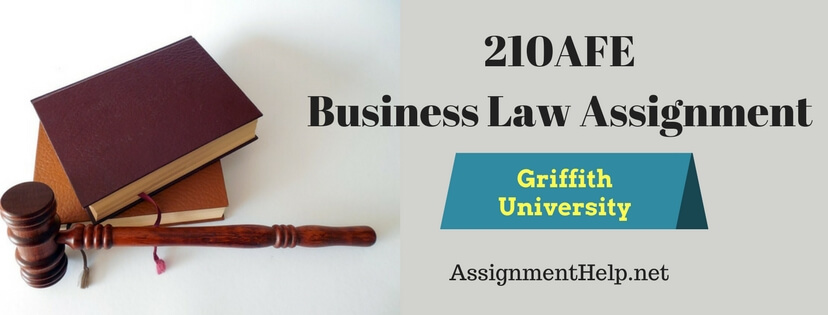2105AFE Introduction to business law Assignment Answers
HYPOTHETICAL QUESTION
Student answers to the hypothetical question must be written under the framework of – Issue, Law, Application and Conclusion (ILAC).
Referencing Cases: example –Donoghue v Stevenson (in italics) (year of the case and other details need not be provided). This is not a research-based assignment. You are not expected to find any law cases which are not provided in your prescribed textbook or lecture materials.
The assignment question covers Australian Consumer Law and Law of Negligence.
- Relevant Law: DO NOT write a detailed explanation of the legal rules of the case law or sections of legislation under the “Law” heading. Please provide only the ‘names of case law and/or sections of legislation’ under the ‘‘Law’ heading of ILAC.
- Application of Law to the Facts: Please refer to the case names and/or sections of legislation that you have identified, when you write the application of law (legal rules) to the facts or arguments of the question.
- Conclusion: You only need one ‘conclusion’ at the end of each question.

HYPOTHETICAL PROBLEM
Answer the following question using the Issue, Law, Application of Law and Conclusion (ILAC) format. Please write a separate ILAC for Part (A) and Part (B) of the Question.
QUESTION Amaroo Yunupingu lives in a remote Indigenous community. He has an interest in moving to Wulagi, one of the most popular Northern Suburbs in Darwin. Avant Developments owns the local Wulagi Shopping Centre. Amaroo attends an appointment with Steve Jones, a representative of Avant Developments, to inquire about the hire of a kiosk at the Shopping Centre to run an Indigenous food outlet. It becomes apparent to Steve that Amaroo speaks an Aboriginal language, understands only limited English, is not an expert in business and financial matters. Steve states that a vacant kiosk is available in the Food Court, however, Amaroo is required to sign a 30-page lease within 24 hours as kiosks are in demand. Amaroo does not understand many of the complex terms used throughout the lease but nevertheless signs the document. Unbeknown to him, however, a term is inserted into his lease stating that he would be charged a rate of rent 30 percent higher than that of all other occupants in the Food Court. Furthermore, Steve fails to mention that two months into the lease, the Food Court will be closed for refurbishment for six months. All other tenants in the Food Court are advised of that fact. After visiting Steve, Amaroo walks to the train station in Paradise Palms in Wulagi to travel to his friend Eugene’s place in Darwin city. It is a rainy day. Darwin Rail has recently untaken some renovation to the railway station in Paradise Palms and the paint applied to the edges of the stairs makes the stairs dangerously slippery when wet. There is no warning sign at the staircase. Amaroo slips and falls whilst walking down the stairs. He fractures his ankle and aggravates a pre-existing lower back injury, which restricts his mobility. When he was walking down the stairs at the railway station, he was holding a 2 kg bag of native cocky apples in his left arm while also receiving a phone call from his friend Eugene who was waiting for his arrival. After the injury, Amaroo is hospitalised for six months and is unable to work at the food court during this time. As a result of his injuries and the unexpected medical expenses, Amaroo develops severe anxiety and depression. To alleviate his depression, he engages in online gambling which later develops into an addiction. Unfortunately, he recently loses $30,000 from gambling.
PART A: Advise Amaroo as to whether Avant Developments has breached any provisions under the Australian Consumer Law (ACL) 2010 with respect to his lease of the kiosk at the local Wulagi Shopping Centre. What remedies (if any) are available for Amaroo under the ACL?
PART B: Advise Amaroo as to whether Darwin Rail is liable for his injuries and the loss of $30,000. Make reference to relevant case law and the Civil Liability Act 2003 (Qld) in your answer. In your answers, DO NOT discuss liability under the principles of the law of contract.


